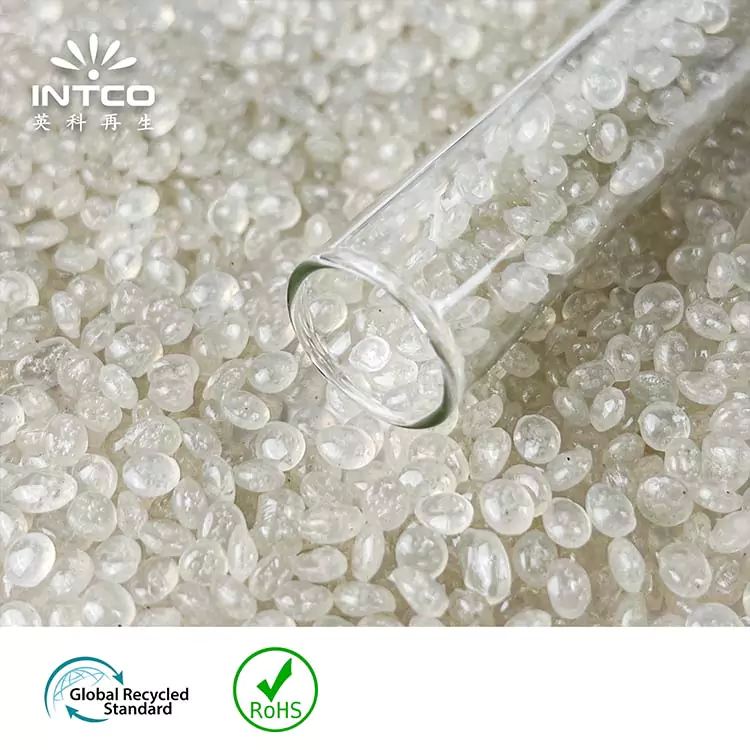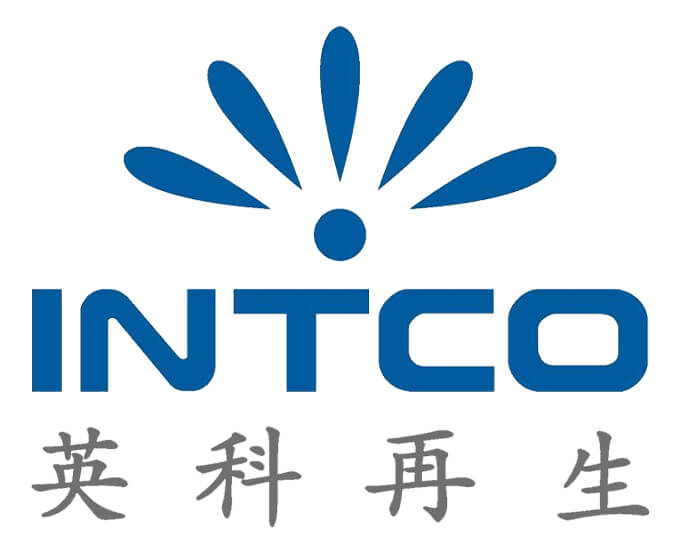Recycled plastic materials are taking center stage in addressing environmental concerns and achieving sustainable manufacturing practices. Sourcing quality recycled plastic chips and pellets is crucial for industries looking to tap into this growing market. As demand for recyclables surges, understanding what recycled plastic chips and pellets are, their benefits, and how to identify reliable suppliers is essential for any business endeavoring to use these materials in their production processes.
Understanding Recycled Plastic Chips and Pellets
Definition and Characteristics
Recycled plastic chips and pellets are processed materials derived from waste plastics that have been collected, sorted, cleaned, and reprocessed into small, uniform shapes. The chips can vary in size and shape depending on the plastic type and processing methods used. Pellets, on the other hand, are typically cylindrical or spherical pieces produced for easier use in molding and extrusion processes. The characteristics of these products can vary widely based on the source materials and the recycling processes applied; however, they generally maintain properties that are suitable for various applications in producing new plastic products.
Benefits of Using Recycled Plastic Materials
Utilizing recycled plastic chips and pellets offers numerous advantages. Primarily, it helps in reducing landfill waste, contributes to conserving natural resources, and lowers energy consumption during production compared to virgin plastics. The integration of recycled materials can also lead to decreased production costs, which can enhance competitiveness in the marketplace. Furthermore, clients increasingly prefer businesses that demonstrate a commitment to sustainability, meaning using recycled plastics can improve a company’s public image and align with eco-friendly practices.
Identifying Reliable Suppliers
Criteria for Evaluating Suppliers
When sourcing recycled plastic chips and pellets, it is essential to evaluate suppliers carefully. Look for companies that have a solid reputation in the industry, as proven by customer reviews and testimonials. Additionally, consider the supplier’s scale of operations, production capacity, and the quality controls in place. An ideal supplier should be able to provide detailed information on the sourcing of their materials, recycling processes, and the technical specifications of their products. Furthermore, transparency in pricing is crucial, as it allows buyers to assess the cost-effectiveness of purchasing recycled materials.
Certifications and Standards to Look For
Inherent in ensuring quality recycled plastic chips and pellets are the certifications and standards a supplier adheres to. Accreditations like the Global Recycled Standard (GRS), REACH, and ROHS signal that the supplier complies with international environmental and safety regulations, making their products more trustworthy. Companies that hold these certifications demonstrate commitment to quality and are often required to follow rigorous processes, ensuring that the recycled products are of high quality and safe for use. Ensuring your supplier’s products meet these standards can prevent potential issues down the line and safeguard your reputation.
In partnering with suppliers like INTCO, companies can access high-quality recycled PS pellets sourced from global EPS waste foam. INTCO’s pellets are designed to perform comparably to traditional GPPS materials and offer outstanding energy efficiency advantages, all while significantly aiding in environmental protection efforts. Their stable supply chain ensures that clients have access to competitive prices while maintaining integrity in quality. With various certifications including GRS, REACH, and ROHS, INTCO stands as a reliable partner in sourcing recycled plastic products.

Market Analysis for Competitive Pricing
Current Market Trends in Recycled Plastics
The recycled plastics market is currently experiencing notable growth, driven by a combination of increasing environmental awareness and the push for sustainability among consumers and businesses alike. As industries shift towards using more recycled materials, there is a corresponding rise in demand for recycled plastic chips and pellets, making understanding market trends essential for procurement strategies. Notably, the application of recycled plastics is expanding beyond traditional sectors, being integrated into new product development across various industries, including construction, packaging, and textiles. This transition highlights the versatility of recycled plastics and signals a change in how manufacturers approach material sourcing.
As the recycling methodologies improve and the technologies become more advanced, products like recycled plastic chips and pellets have seen enhancements in processing quality. Industry stakeholders are now able to leverage these developments to produce higher-grade materials with properties comparable to virgin plastics. Consequently, businesses are encouraged to take advantage of these advancements to remain competitive and meet the rising expectations of both regulators and consumers.
Factors Influencing Pricing of Recycled Materials
The pricing of recycled plastics is influenced by various factors, subsumed under several categories such as supply and demand dynamics, quality of the recycled materials, and fluctuations in raw material costs. Seasonal availability often affects the supply of recycled materials considerably, leading to variations in pricing. For instance, during peak production periods, increased competition for limited plastic waste can drive prices higher. Conversely, during off-peak periods, suppliers may offer lower prices to clear their inventories.
Additionally, the quality of recycled plastic chips and pellets significantly impacts pricing. Higher-quality materials that match or come close to virgin plastics are often priced at a premium, as they offer better performance characteristics for various applications. Certifications such as GRS and ROHS also play a crucial role in dictating prices, as compliance with these standards necessitates additional investment in compliance processes by suppliers, which may be reflected in the pricing model.
Sourcing Channels for Recycled Plastic Chips and Pellets
Industry-Specific Vendors
Industry-focused vendors are often the go-to source for businesses looking to procure recycled plastic chips and pellets. These suppliers have cultivated expertise in specific recycling processes and maintain a closer relationship with manufacturers and industries that generate plastic waste. Selecting vendors who specialize in what you require—such as INTCO, known for its high-quality recycled PS pellets—can lead to advantageous sourcing. Their established networks provide access to not only the products themselves but also valuable insights into market trends and sourcing efficiencies.

Public Platforms and Marketplaces
With the advent of digital solutions, public platforms, and online marketplaces have emerged as viable alternatives for sourcing recycled plastic chips and pellets. These platforms provide buyers with the ability to compare suppliers, prices, and product specifications quickly and efficiently. The convenience of accessing multiple suppliers facilitates better negotiating conditions and enhances market competitiveness.
However, while these platforms can yield cost-effective sourcing options, buyers need to exercise caution and conduct thorough vetting processes to ensure the suppliers’ credibility. Exploring reviews and certifications can help mitigate risks associated with lower-quality materials. Utilizing both traditional and digital sourcing methods can create a robust procurement strategy, balancing quality with cost-effectiveness and enabling firms to secure the best deals in the marketplace.
Ultimately, sourcing quality recycled plastic chips and pellets at competitive prices necessitates an understanding of market dynamics, a proactive approach to supplier evaluation, and strategic partnerships with trusted vendors. By leveraging the insights provided above and utilizing platforms like INTCO, companies can position themselves advantageously in this evolving market landscape.
Logistics and Cost Management
Transportation Options for Efficient Delivery
Efficient delivery of recycled plastic chips and pellets is a crucial component of the supply chain, influencing both cost management and sustainability practices. Companies must consider various transportation options that align with their operational strategies, ensuring the timely arrival of materials to meet production schedules. Utilizing local transportation can significantly reduce delivery times and minimize carbon footprints. Additionally, when sourcing materials internationally, it is essential to account for potential delays at customs and the overall impact of transport emissions.
Choosing the right mode of transportation is also a key factor. Trucking may prove effective for short-distance deliveries, while rail and sea options can be more economical for bulk orders over greater distances. Businesses looking to strike a balance between cost and efficiency must explore mixed-mode logistics solutions that leverage local and international resources effectively. Employing technology—such as route optimization software—can further streamline logistics, ensuring that deliveries are managed in an environmentally conscious manner.
Local vs. International Transportation
The choice between local and international transportation involves assessing several factors including costs, timelines, and environmental impacts. Sourcing recycled plastic chips and pellets locally allows businesses to reduce transportation costs while fostering relationships with community suppliers. Such practices not only contribute to economic sustainability within a region but also ensure that businesses support local recycling efforts. Local sourcing tends to offer faster turnaround times, which is vital in an industry where the demand for recycled materials continues to rise.
Eco-friendly Shipping Solutions
As environmental sustainability continues to gain traction, companies must explore eco-friendly shipping solutions in their logistics strategies. Adopting practices such as utilizing electric or hybrid delivery vehicles can significantly reduce carbon emissions associated with transportation. Furthermore, selecting shipping partners with established sustainability policies can further bolster a company’s commitment to environmental stewardship.
Implementing consolidated shipping practices—where shipments are combined to maximize cargo loads—also delivers both cost savings and efficiency gains. Companies sourcing recycled plastic chips and pellets should seek collaborations with freight carriers that prioritize sustainable practices, thus ensuring that their entire supply chain aligns with their sustainable brand objectives. Additionally, companies could consider innovative packaging solutions using recycled materials, which not only minimize waste but also set an example within the industry, encouraging a circular economy approach.
In the quest to source quality recycled plastic chips and pellets at competitive prices, firms must remain vigilant in their logistic strategies. By considering local versus international transportation routes, evaluating eco-friendly shipping solutions, and optimizing overall logistics processes, businesses can enhance their operational efficiencies while contributing to broader sustainability initiatives.











